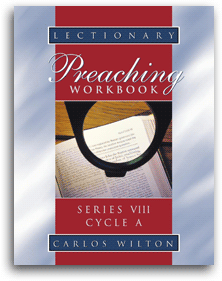SermonStudio
Thanksgiving Day
Preaching
Lectionary Preaching Workbook
Series VIII, Cycle A
Theme For The Day
Thanksgiving is not about entitlement.
Old Testament Lesson
Deuteronomy 8:7-18
Keeping Faith In A Rich Land
Thanksgiving is not about entitlement.
Old Testament Lesson
Deuteronomy 8:7-18
Keeping Faith In A Rich Land


